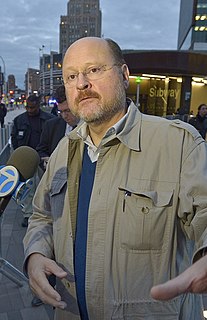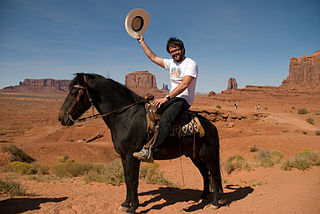A Quote by Jonathan Levine
I think Giuliani started a trend that Bloomberg continued with rampant gentrification, and I think it's tough because why would any city choose not to do that?
Related Quotes
What do you think it is to be normal?' Why in the world would you want to be?' she says. I don't know. I guess that's the problem.' I don't think normal is that great.' But so many people choose it,' I reply. I don't think that's it at all. I think most everyone is normal and some of us, for whatever reason, choose to reject that and wear ruby red slippers or old black hats.' Well, why do we choose the hard road?
I think I started to come into my own when I started doing more original material, and that, I think, culminated in 1998's Modern Cool. I insisted on going my own way. I think until you're more prolific, people don't trust that. So at first I think it was harder. They didn't know what to think, but as I continued along that path, they generally came my way.
I don't know why women would think they would be underrepresented in that 40 per cent, and I do not know why they think they would be underrepresented in that 60 per cent either. Because, any community that has their traditional leader in the area, one would expect that, among the people, they would want to ensure that this committee, that 60%, is properly representative.
It's very tough to give advice because it's tough out there for everybody but for a girl it's even tougher, because I don't think the glass ceiling has changed at all in the past 30 years. Otherwise the radio would be covered with girl bands, or girls in bands, so I don't think much has changed on that level. But I think that bands can still have a lot of success trying to go another route.
When the back-to-the-cities trend started taking root, albeit very unevenly, cities were so glad to finally land deals that they routinely overpaid, not having a solid grasp of the demographic and market forces they should have been channeling instead of subsidizing. It’s especially true for retail and entertainment projects, which generate very poor-quality jobs. I have yet to find a city that has figured out how to ‘take the foot off the pedal’ and stop over-subsidizing, even when gentrification becomes a problem.
I think as much as the city is changing us, our experience inside the city also changes. I think, a city like Cairo - and it's interesting because yesterday, a friend of mine told me the same this thing about New York - is a city that you can't control. It's very bold and very aggressive, and it will constantly resist any attempt at control. But even though you can't control it, you can find your path within the city. You can come to a better understanding of your relationship with it.





































